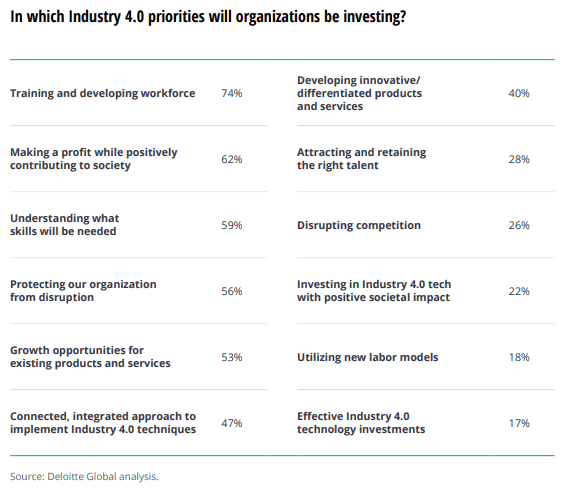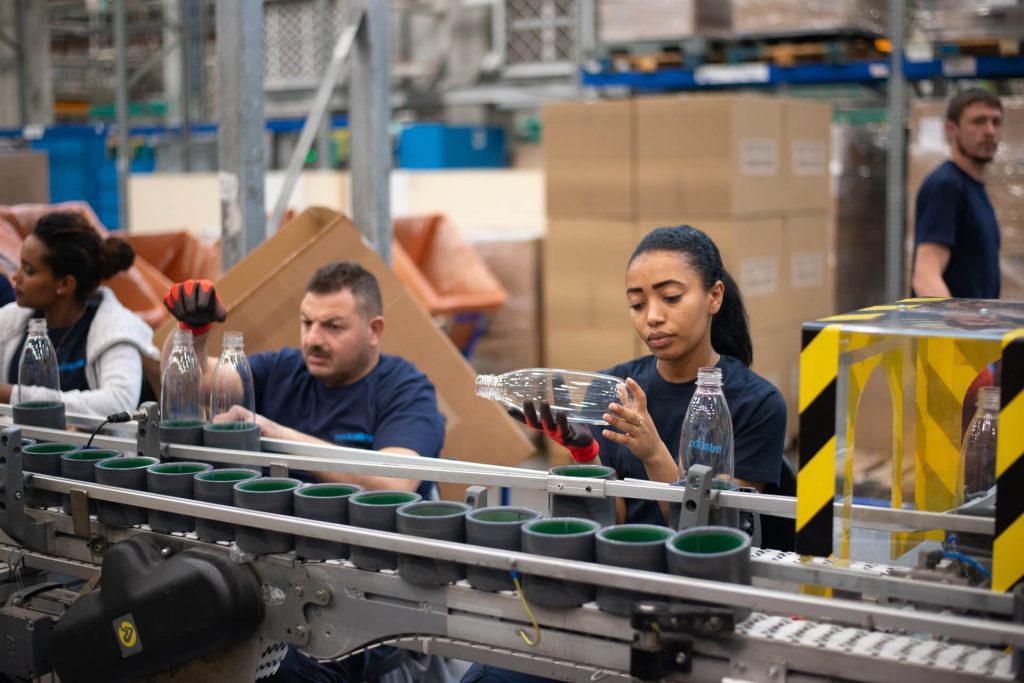Many manufacturers have previously only focused on integrating Industry 4.0 technologies that had a direct impact on efficiency, cutting costs, and maximizing profit – upgrading and connecting equipment. However, those who are thriving in this era are taking a more holistic approach. They understand that digital transformation applied to all areas of business, most notably, talent development a.k.a. worker training is key.
Training workers to succeed in the future
According to Deloitte’s “The Fourth Industrial Revolution” report, a growing number of business executives are embracing the importance of talent development and lifelong learning which includes self-paced learning, continuing education, and ongoing professional development.
One of the aspects of Industry 4.0 most speculated about has been the potential effect of cognitive technologies on the human workforce. While artificial intelligence and automation have certainly caused much angst among workers worldwide, leaders have begun to embrace talent development and lifelong learning since Delloitte did their first survey in 2017. A growing number of leaders are also accepting some responsibility for preparing their workforce for potential changes to help them succeed in the future.

Consequences of poor training
More often than not, companies have formalized training programs, but in practice, skills are learned through a variety of informal ways. Ultimately, people rely on unofficial training methods like job shadowing, which have been common practice in many businesses for decades.
These traditional training methods are inherently non-standardized and an inefficient way to transfer knowledge. Not only are they wasteful, but they increase safety risks and negatively impact quality. In fact, 85% of quality costs are still caused by worker errors. This indicates that training programs still aren’t where they should be. While these traditional approaches have been sufficient for their time, they ultimately lack standardization and could be improved upon.


New generations expect new methods
Rather than defaulting to traditional training methods, manufacturers need to look towards new technology to supplement and formalize their strategies for training the incoming generations of workers. This generation of workers only stays with a company for 2-3 years, not 20-30. Where previous generations had entire careers to develop skills, the current workforce has approximately 10% of that. Fortunately, the shifting workforce comes with its own advantages as well. They are “digital natives.” They grew up using digital tech on a daily basis. This means they are well equipped to leverage new technologies like REWO to improve training strategies.
